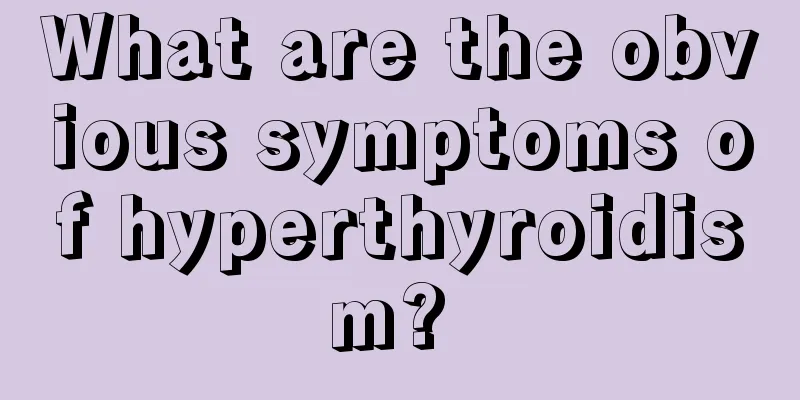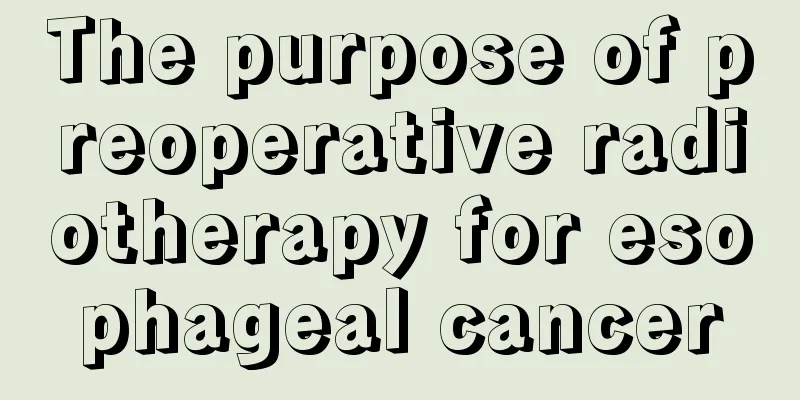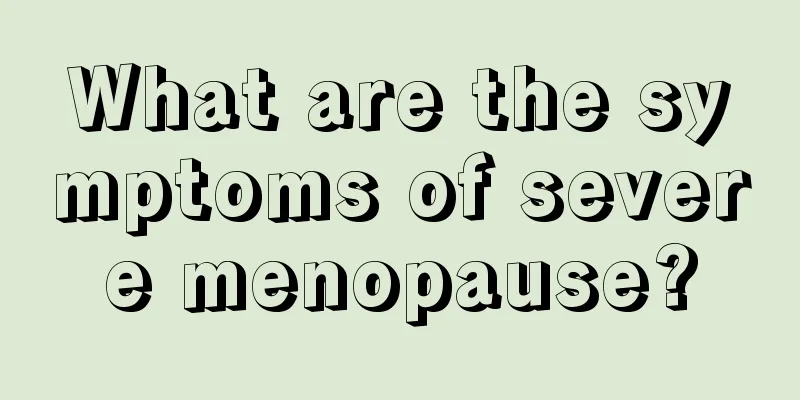What are the obvious symptoms of hyperthyroidism?

|
According to clinical research, the incidence of hyperthyroidism has shown an increasing trend year by year, which is inseparable from modern people's diet and mental stress factors. When people suffer from depression and bad mood for a long time, they are at risk of developing hyperthyroidism. Therefore, understanding the symptoms of hyperthyroidism has positive significance for timely detection and treatment of the disease. What are the early symptoms of hyperthyroidism? The early symptoms of hyperthyroidism are as follows: 1. Hyperthyroidism patients belong to the group of hypermetabolic syndrome. This symptom mainly makes the patients show fear of heat and sweating, often with low fever, and high fever during crisis. They often have palpitations and rapid pulse, and their appetite is obviously increased. However, weight loss and fatigue are also one of the early symptoms of hyperthyroidism. 2. Abnormalities in the endocrine system are early symptoms of hyperthyroidism, mainly manifested as excessive menstruation in women, and amenorrhea may also occur in those who suffer from untreated illness for a long time. The adrenal cortex function is low, and the blood and urine cortisol levels are reduced. Primary hypothyroidism is sometimes accompanied by autoimmune adrenocortical insufficiency and/or type 1 diabetes, which is called Schmidt syndrome. 3. The goiter of patients with hyperthyroidism is mostly diffuse and symmetrical, while a few are asymmetrical or obviously enlarged. At the same time, the blood flow to the thyroid gland increases, and vascular murmurs and palpable thrills can be heard on the outer sides of the upper and lower lobes, especially in the upper part of the gland. 4. Special facial features are also early symptoms of hyperthyroidism, including pale and sallow face, puffy face, dull eyes, loose and swollen eyelids, indifferent expression, few words, hoarse voice and slurred speech. This is a symptom of hypothyroidism that should be paid special attention to. 5. Hyperthyroidism can cause some adverse changes in the patient's mental and nervous system. The patient is more easily excited, talkative, hyperactive, insomniac, nervous, unable to concentrate, suspicious, etc. Sometimes hallucinations occur, and even submania, but there are also taciturn and depressed patients. The patient's tendon reflexes are active and the reflex time is shortened. This is also an early symptom of hyperthyroidism. 6. Hyperthyroidism can also cause some symptoms of exophthalmos, which makes the eyes unable to close, and the conjunctiva and cornea are exposed, causing congestion, edema, corneal ulceration, etc. In severe cases, it can lead to blindness in patients. |
<<: Is the body's "garbage" exceeding the standard? Six signals conveyed to you
>>: What does high total bilirubin mean?
Recommend
What should I do if canvas shoes rub my feet?
Newly bought canvas shoes are pulpy and hard all ...
What are some tips for treating teeth grinding in adults?
The health status of teeth can be discovered from...
What is herpes zoster
Speaking of shingles, perhaps everyone has heard ...
Is it necessary to use targeted drugs for nasopharyngeal carcinoma?
Is it necessary to use targeted drugs for nasopha...
What to pay attention to about skin cancer
When skin cancer occurs, many patients are in gre...
What are the preferred examination items for kidney cancer
What tests should be done if you have kidney canc...
What are the treatments for thyroid cancer?
How many treatments are there for thyroid cancer?...
How many days after sex can you take a pregnancy test
For some women who really want to get pregnant, t...
Dietary considerations for patients with cervical cancer
What are the dietary precautions for patients wit...
This symptom may be caused by lumbar disc bulging
Lumbar disc bulging is a common lumbar spinal dis...
What should I do if my eyes become deformed after wearing myopia glasses for a long time
Myopia due to glasses is a very common phenomenon...
What are the benefits of washing your face with salt water?
Salt water not only has anti-inflammatory and bac...
Can lung CT detect lung cancer?
At this time, when the physical examination finds...
The best way to remove wrinkles
As time goes by, wrinkles will gradually begin to...
What foods can I eat and how to treat nasopharyngeal cancer
No matter what disease you have, you should take ...









